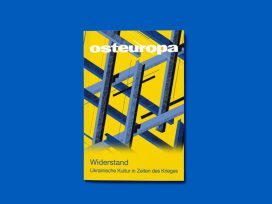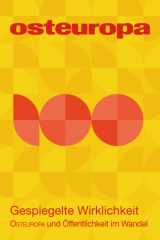Manfred Sapper
is editor-in-chief of the journal Osteuropa.
Articles
A new musical cosmos
Anne-Sophie Mutter on Witold Lutoslawski
The world-famous violin virtuoso Anne-Sophie Mutter remembers going through agony before the premiere of Chain II. She had to struggle with the strange new hieroglyphics in Witold Lutoslawski’s score, but even today the marvellous sounds and colours of his music still enchant her. Lutoslawski opened the door for Mutter onto the language of contemporary classical music and new freedom as a performer. She disdains any schematic divisions of music into tendencies, eras or national schools, and pleads the case for music that unfolds from silence. “We really need such music, since the world is very loud indeed!”
‘Europe's last dictatorship’: A self-fulfilling prophecy
An interview with David Marples
Lukashenka’s departure from the path of liberalization required by the EU’s Eastern Partnership programme suggests Russian pressure, says David Marples. The Belarusian president may have been able to dispose of political opponents, but the country’s economic weakness poses a more elusive threat to the stability of his regime.
Overcoming war
Jan Bloch: Entrepreneur, publicist, pacifist
Jan Bloch is a classic example of an upwardly-mobile, nineteenth century Jew. Bloch worked his way up from humble eastern European Jewish origins in central Poland to become one of the Russian Empire’s leading entrepreneurs. However, Bloch’s initiatives to overcome war represent his greatest service. He lent impetus to the Hague Peace Conference. In his standard work “The Future of War”, he called for a departure from Clausewitz and advocated arms control as well as an international court of justice. This book deserves its place as a classic work of historical peace research.


